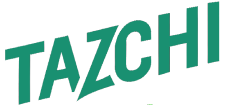Introduction
In today’s digital age, privacy and data security are becoming increasingly important. Unfortunately, unauthorized access to personal information can have devastating consequences for individuals. One such case that has recently come to light is the leak of personal information belonging to Chloe Marini, a renowned public figure. This breach of privacy has raised concerns about the integrity of online security and the potential implications for individuals in the public eye. In this article, we delve into the details of the Chloe Marini leak and uncover the truth behind this alarming incident.
The Chloe Marini Incident: What Happened?
Chloe Marini, a well-known celebrity and activist, found herself at the center of a privacy scandal when her personal information was leaked online. The leak included private photos, financial records, and sensitive correspondence, sparking outrage among her fans and followers. The incident not only violated Chloe’s privacy but also exposed her to potential threats such as identity theft and harassment.
The Impact of the Leak: Why It Matters
The Chloe Marini leak serves as a stark reminder of the risks associated with online privacy in the digital age. For individuals like Chloe, who rely on their public image for their livelihood, such breaches can have far-reaching consequences. The unauthorized disclosure of personal information can damage reputation, jeopardize financial security, and infringe on the individual’s right to privacy. In Chloe’s case, the leak has forced her to confront the harsh reality of cyber threats and the challenges of safeguarding one’s personal data in an increasingly interconnected world.
The Broader Implications: What We Can Learn
The Chloe Marini incident highlights some key lessons for both public figures and the general public. Firstly, it underscores the importance of robust cybersecurity measures to protect personal information from unauthorized access. Individuals should take steps to secure their online accounts, use strong passwords, and enable two-factor authentication to mitigate the risk of breaches.
Secondly, the incident sheds light on the need for greater awareness of data privacy rights and regulations. In an era where personal information is constantly being collected and shared online, individuals must understand their rights and take proactive steps to protect their data from exploitation.
How to Enhance Online Privacy: Tips and Best Practices
In light of the Chloe Marini leak and similar incidents, it is crucial for individuals to prioritize their online privacy. Here are some tips and best practices to enhance your digital security:
1. Use Strong, Unique Passwords: Avoid using easily guessable passwords and opt for unique combinations of letters, numbers, and symbols for each online account.
2. Enable Two-Factor Authentication: Add an extra layer of security to your accounts by enabling two-factor authentication, which requires a second form of verification in addition to your password.
3. Be Mindful of Phishing Attempts: Stay vigilant against phishing emails and messages that attempt to trick you into revealing sensitive information. Avoid clicking on suspicious links or providing personal details to unfamiliar sources.
4. Regularly Update Your Devices and Software: Keep your devices and software up to date with the latest security patches and updates to protect against known vulnerabilities.
5. Limit the Information You Share Online: Be cautious about the personal information you share on social media and other online platforms. Avoid oversharing and review your privacy settings regularly to control who can access your data.
Frequently Asked Questions (FAQs)
1. What should I do if my personal information is leaked online?
If your personal information is leaked online, you should report the incident to the relevant authorities, such as the platform hosting the data or local law enforcement. Additionally, consider seeking legal advice to understand your options for recourse.
2. How can I prevent my personal information from being leaked online?
To prevent unauthorized leaks of personal information, you can take proactive steps such as using strong passwords, enabling two-factor authentication, and being cautious about the information you share online. Regularly reviewing your privacy settings and monitoring your online accounts for unusual activity can also help safeguard your data.
3. Is it possible to remove leaked information from the internet?
While it may be challenging to completely remove leaked information from the internet, you can take steps to minimize its visibility. This may involve contacting website administrators to request the removal of sensitive data and working with online reputation management services to mitigate the impact of the leak on your digital footprint.
4. What legal protections exist for individuals whose privacy is violated online?
Legal protections for online privacy violations vary by jurisdiction, but many countries have laws in place to address data breaches, hacking, and unauthorized disclosure of personal information. Individuals can seek recourse through avenues such as data protection authorities, civil lawsuits, or criminal prosecution, depending on the nature of the violation.
5. How can public figures protect their privacy in the digital age?
Public figures can enhance their privacy protection by implementing comprehensive cybersecurity measures, monitoring their online presence, and working with professionals to manage their digital reputation. It is also essential for public figures to educate themselves about data privacy rights and take proactive steps to secure their personal information from potential threats.
In conclusion, the Chloe Marini leak underscores the importance of online privacy and the need for individuals to safeguard their personal information in an increasingly digitized world. By prioritizing cybersecurity, awareness of data privacy rights, and best practices for online safety, individuals can mitigate the risks of unauthorized access to their data and protect their privacy in the digital age.
